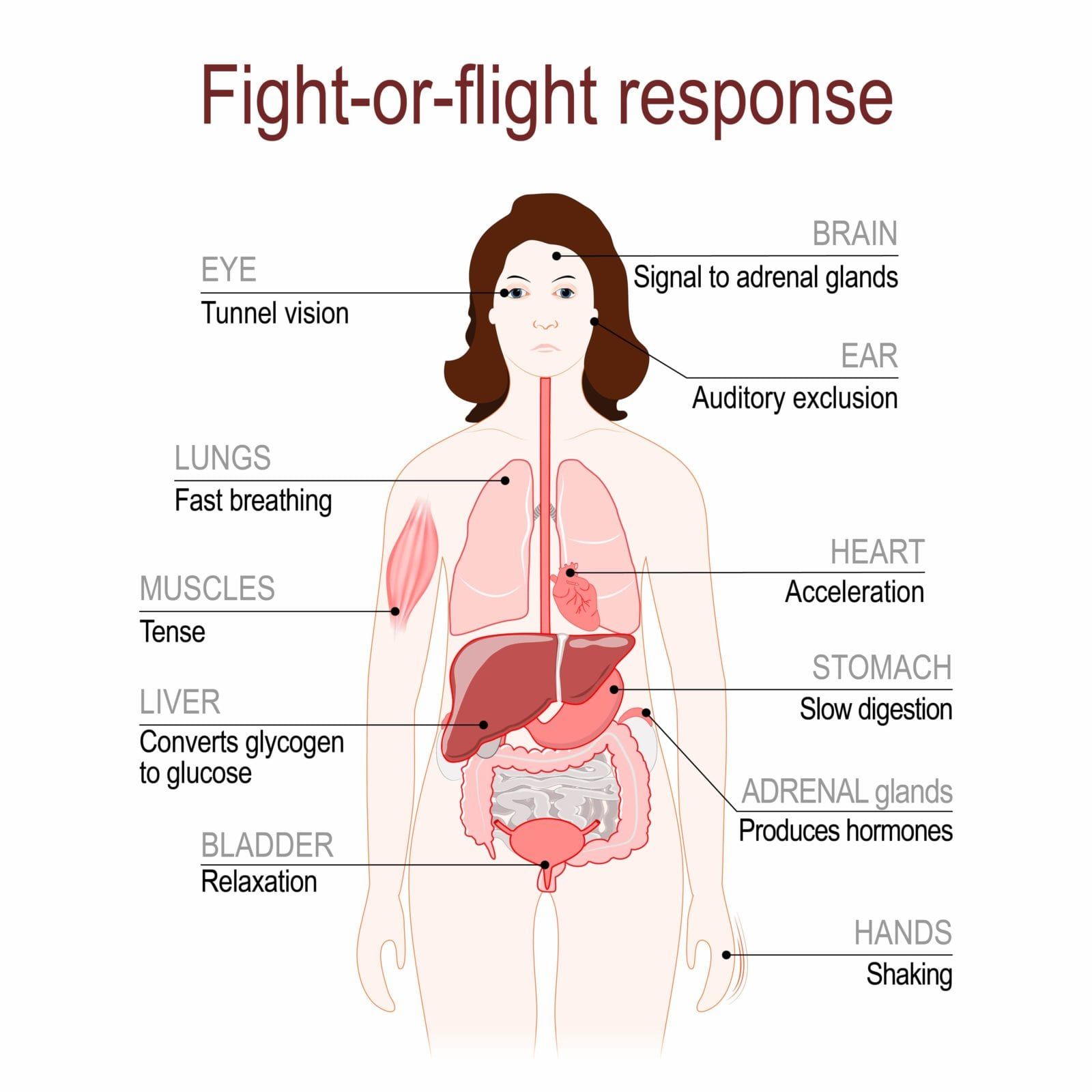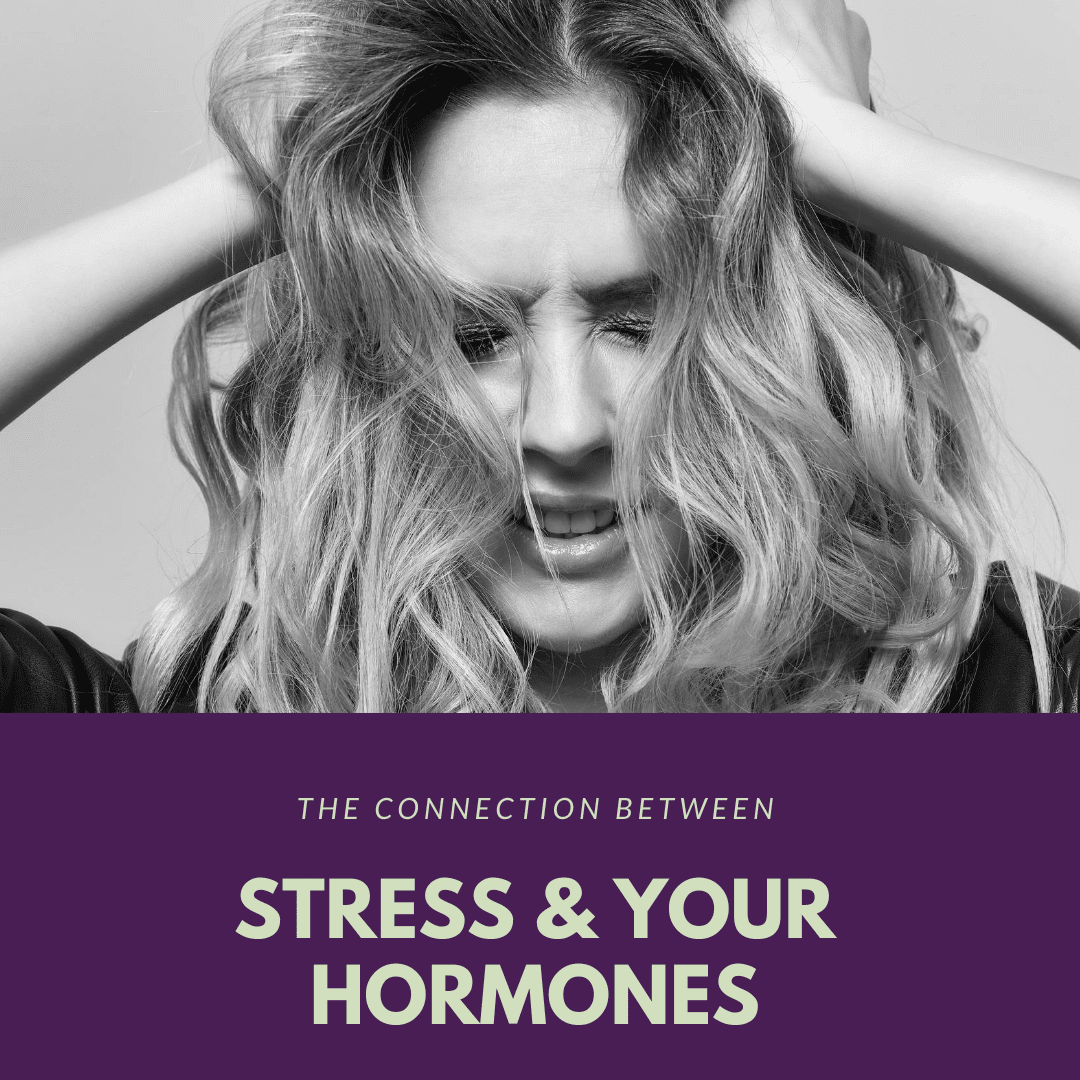Did you know that according to the American Psychological Association, women are more likely than men to report having a great deal of stress that is characterized as an 8, 9, or 10 on a 10-point scale? While we all experience stress at some point in our lives, medical experts agree that chronic stress can negatively affect the body in a variety of ways. In women, one common way that stress affects the body is by causing hormonal imbalances.
A hormonal imbalance occurs as a result of having too little or too much of a particular hormone in the bloodstream. Oftentimes, when a single hormone is out of balance, it can cause a snowball effect, which changes the amount of other hormones in the blood. Since hormones are responsible for regulating a number of processes throughout the body, even a minor hormonal imbalance can affect numerous parts of the body.

Cortisol, also known as the stress hormone, is produced by the adrenal glands above your kidneys during times of stress. At its proper level, your body uses cortisol for several important functions such as reducing inflammation, boosting energy levels, regulating blood pressure, increasing blood sugar, controlling the sleep/wake cycle, and managing how the body processes carbs, fats, and proteins.
Normally, the body regulates cortisol levels by recovering from stress. However in the case of chronic stress, high levels of cortisol are constantly circulating throughout the bloodstream. When this happens, your body initiates the fight or flight response and limits all other non-essential functions. Limiting or ceasing all other functions not associated with the fight or flight response for long periods of time can cause symptoms such as: memory and concentration problems, anxiety and depression, headaches, heart disease, digestion problems, weight gain, and trouble sleeping.
As mentioned before, high cortisol levels can also affect the other hormones. Specifically, there is a complicated relationship between cortisol and estrogen. When high cortisol levels lower estrogen levels, symptoms of a hormonal balance can occur. In other cases, circulating estrogen can also increase the levels of cortisol in the blood, which can also cause symptoms. Symptoms of a hormonal imbalance in women include:
- Heavy or frequent periods
- Stopped or missed periods
- Hair loss or thinning
- Pain during sex
- Vaginal dryness/atrophy
- Weight gain
- Night sweats
- Skin tags
- Darkening of the skin in the neck creases, groin or underneath the breasts
- Acne on the face, chest, or upper back
- Excessive hair growth on the face or chin
In women, hormonal imbalances can have many different causes. Short-term hormonal imbalances can be simply a normal part of a woman’s reproductive life cycle such as pregnancy, breastfeeding, premature menopause, and menopause. Other cases of hormonal imbalance caused by reproductive hormones include the use of birth control pills, ovarian insufficiency, and polycystic ovarian syndrome.
Still, there can be other medical conditions that may be responsible for a hormonal imbalance. Therefore, it is important to discuss the possibility of an imbalance with your doctor if you are experiencing any symptoms. In most cases, a blood test can be used to assess the levels of certain hormones, however further testing may be needed to determine the exact cause.

Dr. Gurdian is Board Certified in Obstetrics and Gynecology and is an active member of the American College of Obstetrics and Gynecology and the North American Menopause Society. She is currently on staff at the Adventist HealthCare Shady Grove Medical Center’s (SGMC). Dr Gurdian has a particular interest in high risk OB, menopause and complex health care issues.


